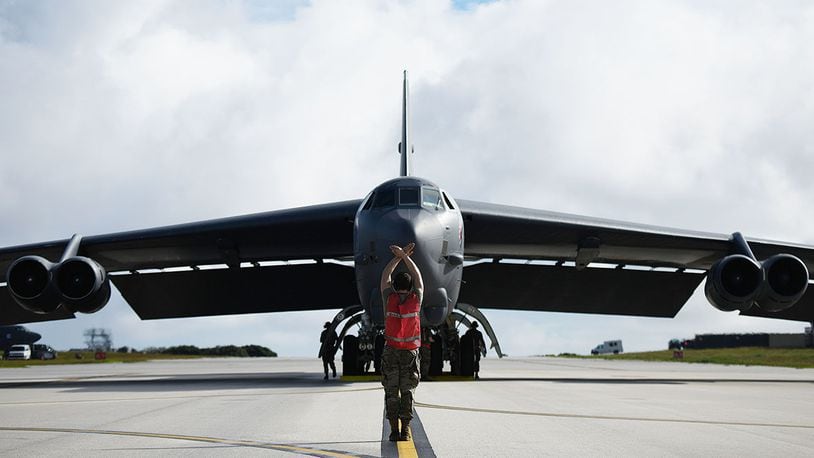”Since the first Stratofortress variant took flight in the 1950s, Collins Aerospace has been onboard,” Ajay Mahajan, vice president, landing systems for Collins Aerospace, said in a recent release. “Our world-class engineers will develop a solution that offers seamless technology insertion to help sustain the B-52 as it continues flying for another three decades.”
The life cycle of the historic bomber, which last rolled off an assembly line in the early 1960s, is managed by the bombers directorate at the Air Force Life Cycle Management Center, based at Wright-Patterson Air Force Base.
Collins’s wheels and brakes division is located at 101 Waco St., in Troy, a facility that dates back to what had been a Goodrich plant when United Technologies acquired it in 2012.
The company is already a provider of wheels and brakes for the Air Force’s F-15, F-16, C-5, C-130 and Global Hawk fleets.
The Air Force is determined to modernize the Boeing-built B-52, also planning to procure new engines for the plane. While the B-52 is the Air Force’s oldest bomber, the avionics, the software, the weapon systems and other components have been continually updated over the years.
In 2019, Boeing announced it selected Raytheon to produce a new radar for the plane. Collins Aerospace is part of Raytheon Technologies. Raytheon Corp. finalized its merger with United Technologies Corp. in April 2020.
About the Author
